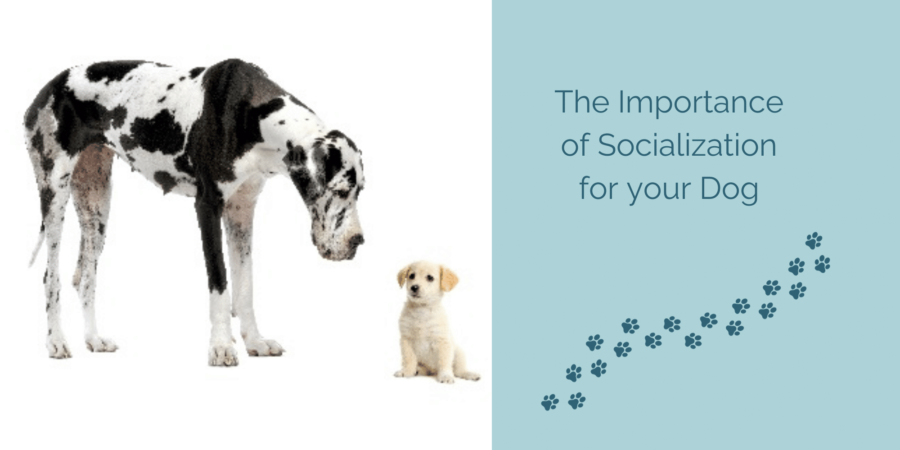Dog socialization is more than just a buzzword in the world of pet ownership. It’s a critical aspect of raising a well-rounded and well-behaved dog. In this post, I’ll delve into why dog socialization matters, what it entails, and how to ensure your pup gets the best out of this essential aspect of their development.
Understanding Dog Socialization
Dog socialization begins at birth with the mother dog and the breeder. This is why it is so important to the dog’s early development that it is not removed from contact with its mother or siblings prior to eight weeks of age. The breeder also plays a key role in the socialization process as he/she provides the dog with becoming familiar to human touch and the sound of the human voice.

Other socialization reasons:
- Behavioral Development: Proper socialization plays a pivotal role in shaping your dog’s behavior. It helps prevent fear, aggression, and anxiety, resulting in a more well-adjusted and confident pet.
- Reducing Fear and Anxiety: Dogs that are well-socialized tend to be less fearful and anxious in unfamiliar situations. This can be especially crucial when you encounter unexpected circumstances or travel with your dog.
- Better Communication: Socialized dogs are better at understanding and responding to both human and canine cues. This enhances your ability to communicate with your pet effectively.
- Safety: Dogs that are accustomed to different environments and situations are less likely to react aggressively or unpredictably when faced with the unfamiliar, reducing the risk of accidents or confrontations.
Steps to Safely Socialize Your Dog
- Start Early: A puppy’s critical developmental period is usually between 3 and 14 weeks of age. However, adult dogs can still benefit from socialization. So it is incumbent upon pup parents to continue the socialization process started by the breeder. If you get your puppy from a breeder, please turn to them for advice and guidance on continuing socialization methods.
- Expose Them Gradually: Introduce your dog to new experiences and environments gradually. Avoid overwhelming situations, especially early in the process. Remember that a puppy is a four-legged baby, and just as you would protect your baby from adverse situations, it is equally important that you do for your puppy. As your puppy is encountering new situations, let it encounter these new experiences on their own timetable and their own way.
- Positive Associations: Use treats, praise, and toys to create positive associations with new experiences. Reward your dog for calm and confident behavior. Reinforce when your pup succeeds in learning something new.
- Variety is Key: Expose your dog to a variety of people, animals, sounds, surfaces, and environments. This includes meeting different types of dogs, going for car rides, and experiencing various outdoor locations. I’ve taken my puppies, after fully vaccinated, to PetSmart and put them in the shopping cart so they can be safe, and get used to items being put around them in the cart. Be cognizant that you should do these things gradually when your puppy is very young, and then as the pup is older, you can increase the number of new experiences. But, watch how your dog reacts, and you’ll be able to set the timetable.
- Professional Help: If your dog is unusually fearful about a situation, and continually reacts negatively, consider enrolling in a reputable dog socialization class or working with a professional trainer. This is also recommended especially if you’re unsure about how to handle specific situations.
- Monitor Body Language: Learn to read your dog’s body language. If your dog is showing signs of fear or stress (e.g., trembling, cowering, growling), remove them from the situation calmly and provide comfort. This does not mean that you are aiding and abetting that fear. There may be something in the dog’s past that has caused it to associate a specific situation or action that has caused them fear and distress.
- Consistency: Make socialization a consistent part of your dog’s life. Regular exposure to new experiences will help maintain their comfort in diverse situations.

Dog socialization is not a one-time event but an ongoing process throughout its life that helps your become a confident and well-adjusted member of your family. By understanding why socialization matters and following the steps to ensure your dog’s positive exposure to the world, you’ll pave the way for a harmonious and fulfilling relationship with your four-legged companion. Remember, a well-socialized dog is a happy dog, and a happy dog makes for a happy owner.
Discover more from The Pup Mommy
Subscribe to get the latest posts sent to your email.






Leave a Reply